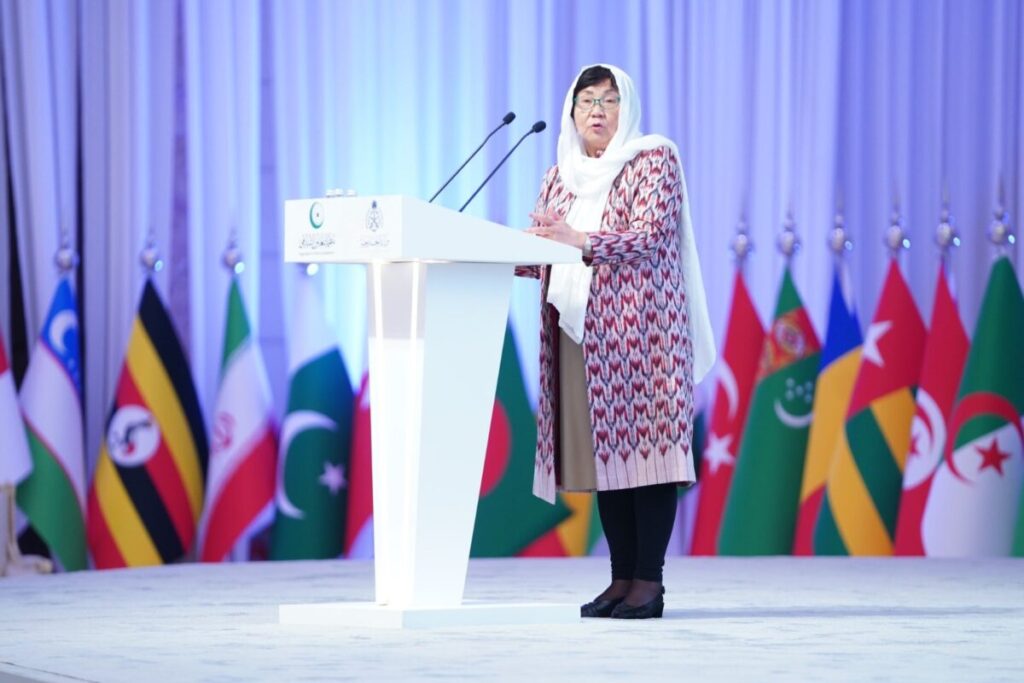Roza Otunbayeva, the head of the United Nations Assistance Mission in Afghanistan (UNAMA), on Wednesday asserted that the stringent restrictions imposed by the Taliban on women and girls in Afghanistan have resulted in the country’s isolation within the international community.
During her address to the Organization of Islamic Cooperation’s International Conference on Women in Islam, Otunbayeva underlined that these limitations not only have distanced Afghanistan from the global community but have also emphasized the challenging circumstances faced by the nation.
UNAMA has stressed the importance of this conference as a platform to keep the dire situation of Afghan women in the global spotlight, considering the severe constraints placed on them by the Taliban.
UNAMA stated, “The message of the OIC and its Member States, the collective voice of the Muslim world, must be heard in #Afghanistan: that women are indispensable parts of any national journey of transformation, development, and growth.”
Otunbayeva emphasized that the limitations on women and girls have now become an integral part of the governing system instituted by the Taliban.
She remarked, “De facto authorities are governing at the expense of the most fundamental rights of half of the Afghan population: its women and girls.”

The UNAMA Head also shared insights gained from regular consultations with Afghan women, revealing a clear divide in opinions regarding the recognition of de facto authorities.
“An overwhelming 46 percent of women express their firm belief that recognition should not occur under any circumstances,” Otunbayeva disclosed. “Additionally, 50 percent of women shared the view that recognition should be granted only once de facto authorities lift the restrictions on women’s education, employment, and their meaningful participation in inclusive government.”
Since the Taliban assumed power in August 2021, the group has faced extensive criticism for imposing severe restrictions on women and girls. They have banned teenage girls from secondary and high school, as well as women from pursuing university education. Moreover, women are prohibited from working for international and national government and non-government organizations, except in medical and educational fields.
Despite these imposed restrictions, the Taliban has insisted that these measures are temporary, with the government aiming to establish an “Islamic environment” for women and girls’ education.




